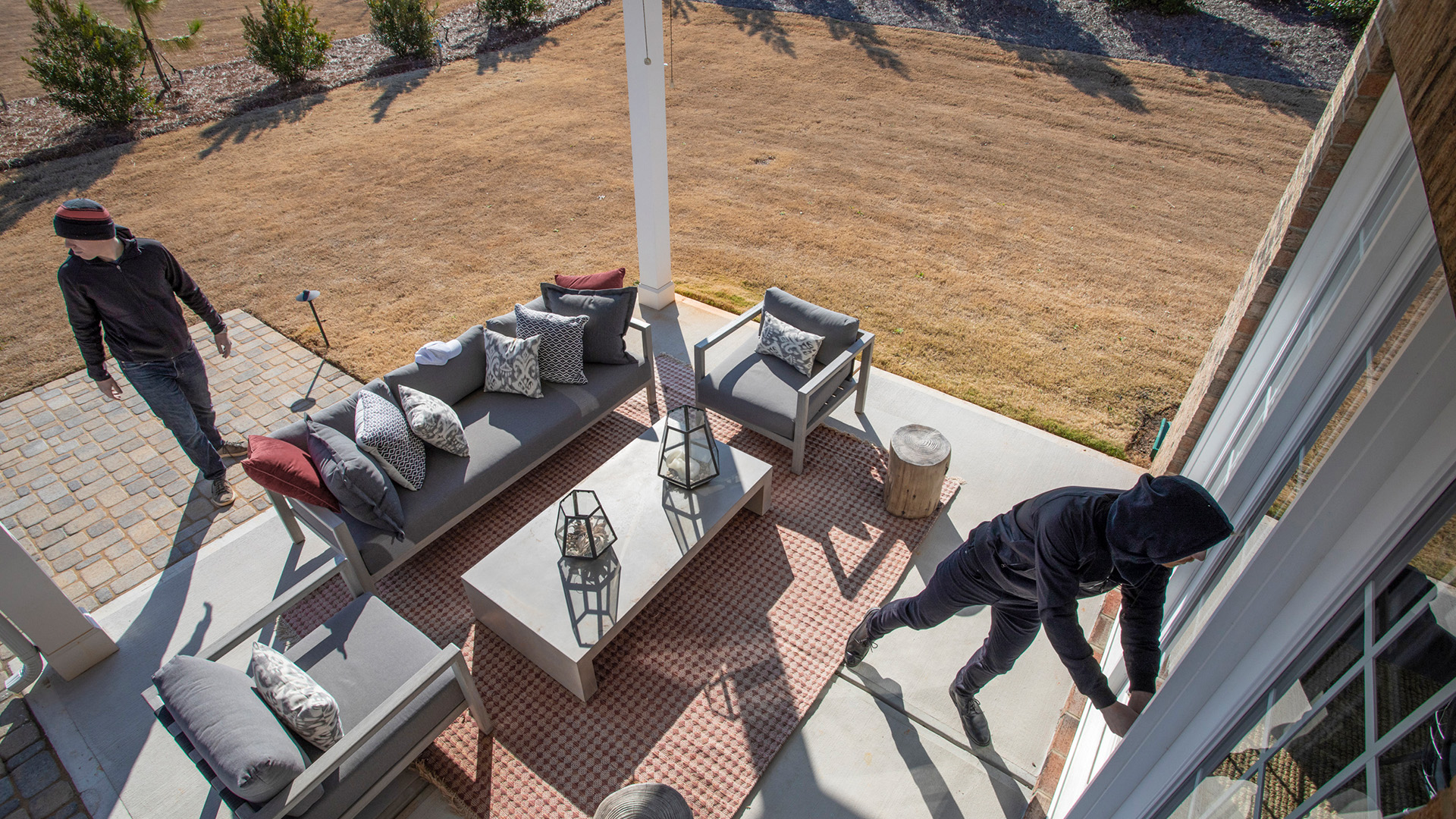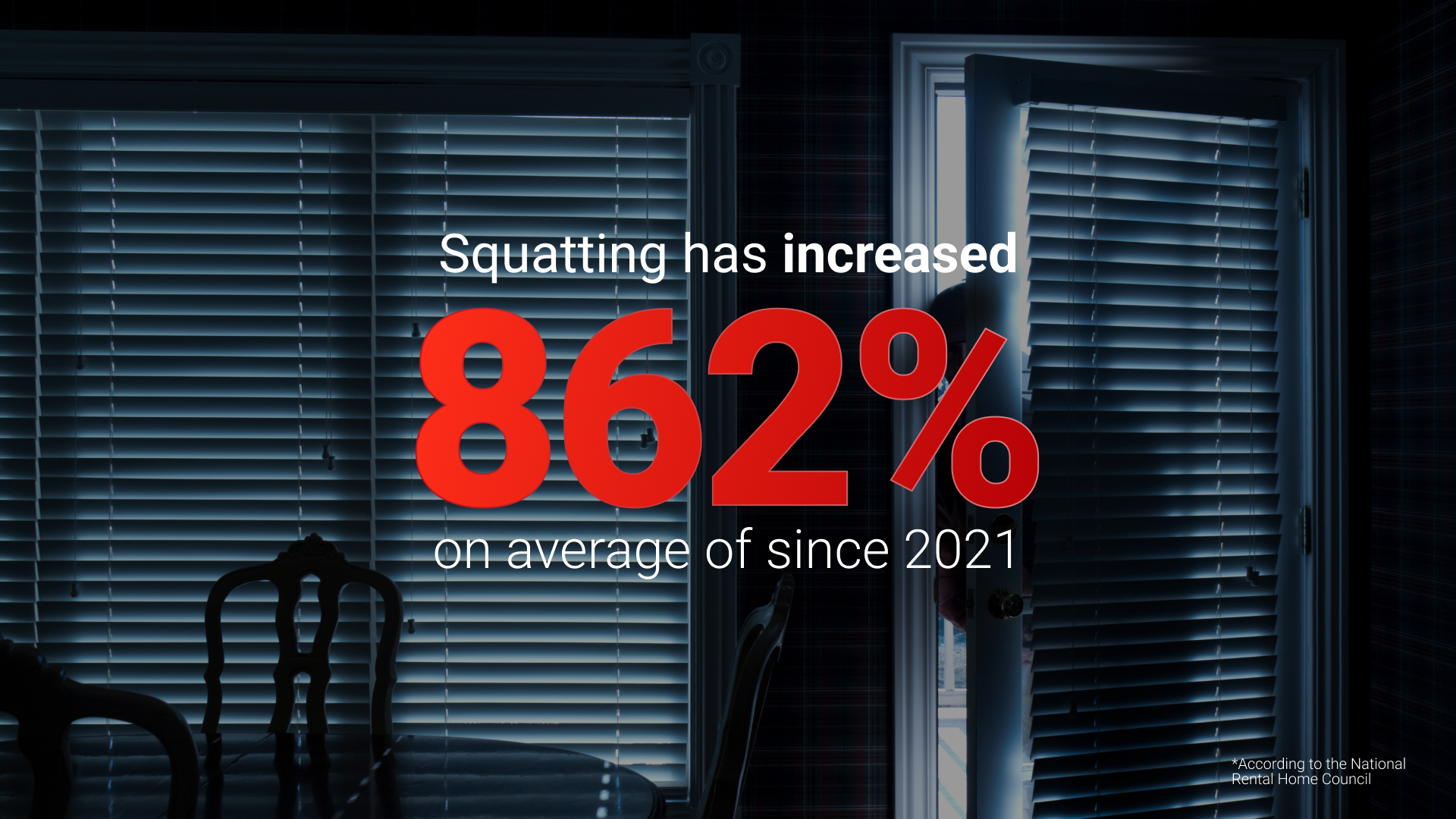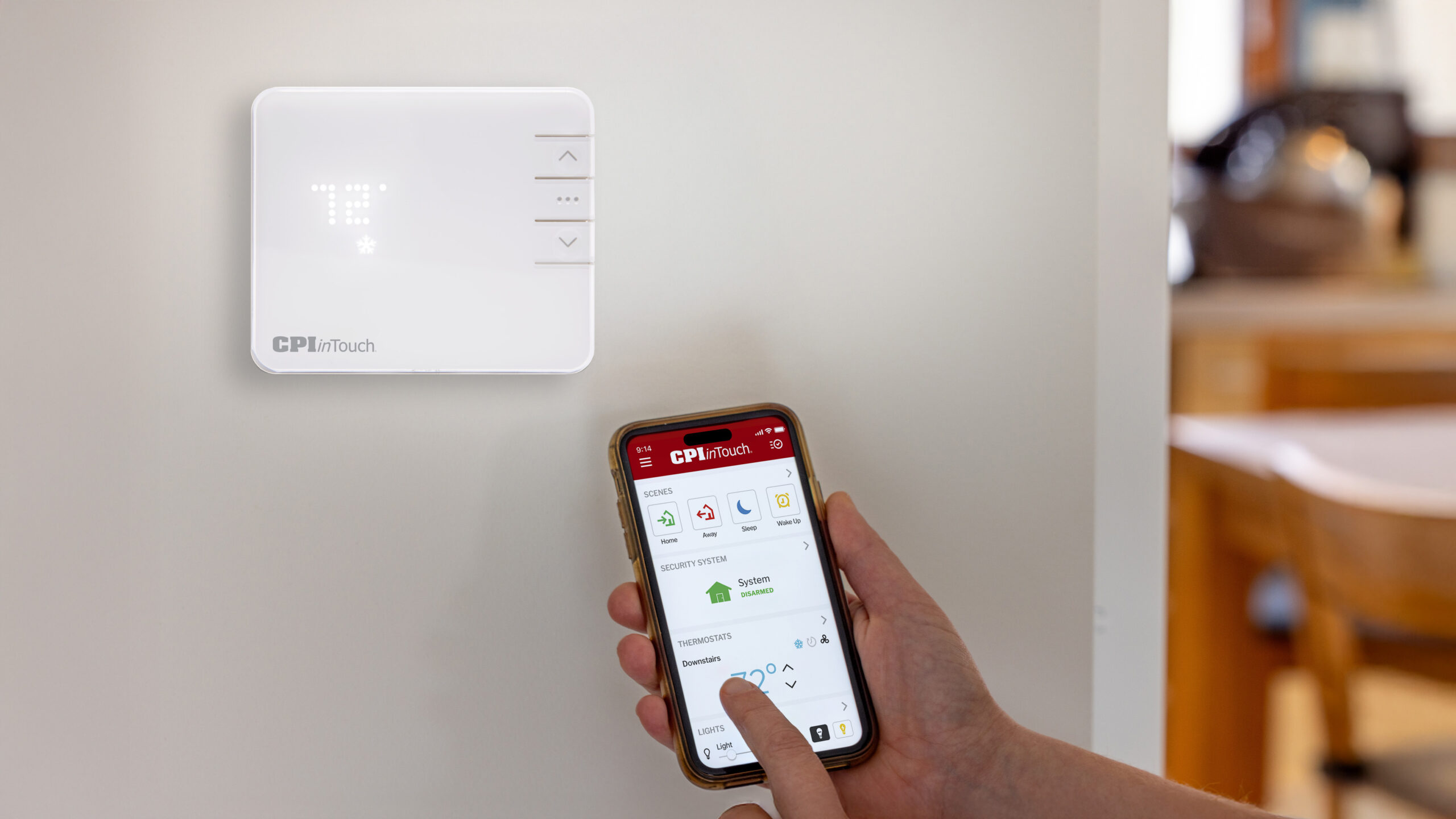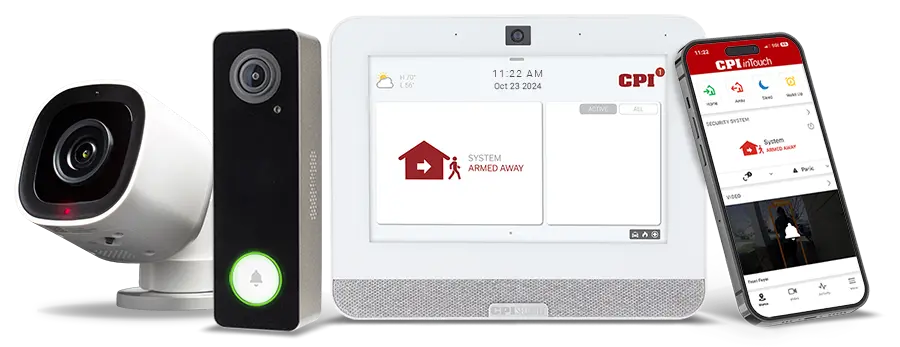An intruder breaking into your house is terrifying, especially if you happen to be home when the break-in occurs. However, the good news is that there are safety measures you can take to help protect your home and family from burglaries. A home security system, for instance, is one of the best preventative methods available since:
- 83% of burglars check for an alarm system before attempting a break-in.*
- Homes without a security system are 300% more likely to be broken into.*
But if you don’t have a professionally monitored security system, there are still steps you can take to protect yourself and your family.
Every break-in is unique, so there’s not one single answer for this terrifying situation. However, here are the general steps you should consider taking in the event someone breaks into your house:
- Remain where you are
- Lock the door
- Stay concealed
- Verify that the intruder is in your home
- Call the police
- Remain calm
- Escape if you can
- Do not confront the intruder
- Document everything afterward
Keep reading for more information on each of these safety recommendations.
Here’s 9 Ways to Stay Safe If Someone Breaks into Your House
Remain Where You Are
If you are in a separate room from where the break-in is occurring, it’s important to stay where you are. Don’t alert the intruder to your presence or confront them, as this can lead to violence, injury, or death.
Lock the Door
Lock the door to the room you are in to prevent the burglar from quickly entering the room. Keep in mind that while most burglaries occur between the hours of 10 am and 3 pm,** the chances of someone breaking into your house at night while you are asleep are still relatively high. For that reason, if your bedroom door cannot be locked, consider investing in a lockable doorknob.
Stay Concealed
You want to avoid any confrontation with the intruder. Don’t do anything that would let someone else know you are home. Don’t turn on any lights and try not to make any noise. The goal is to remain undetected during the incident.
Verify That the Intruder Is in Your Home
This next step can be a bit more complicated. You want to safely verify that an intruder is in your home before contacting the police. Ensure that what you’re hearing is not a pet, a creaking floorboard, or a family member. The best way to do this is to be quiet and move towards the door and listen.
Call the Police
After you’ve verified that a potential intruder is in your home:
- Move away from the door.
- Call the police by dialing 911.
- Remain as quiet as possible.
- Tell the police where you live, what you know, and what is happening.
Remain Calm
Most intruders are not trying to harm the people that live in the home. They are usually there to steal possessions as quickly as possible with limited homeowner engagement. So, the best action you can take to stay safe during the incident is to remain calm and quiet with the door locked. Now is not the time to be a hero.
Escape if You Can
This action will largely depend on the layout of the room you find yourself locked in during the break-in. If you can discretely escape through a first-floor window or secondary door, that may be your best option. Once you escape, move far away from the house, ideally to a trusted neighbor where you can wait for the police to arrive.
If you cannot easily or discretely escape, remain where you are and do your best to stay concealed from the intruder.
Do Not Confront the Intruder
Never confront an intruder, even if you have a weapon, like a baseball bat, machete, or firearm. It is better to wait for them to leave or for the police to arrive instead of escalating the situation into something that could become far worse.
Document Everything Afterward
It’s essential to write down everything you remember as soon as possible after the break-in. This will help to ensure you recall the critical details of the incident while your memory is still fresh.
As time goes on, details may be forgotten or become foggy. Even the smallest detail may end up being pivotal to helping the police catch the intruder.
Preventing a Break-In: How to Tell if a Burglar is Watching Your House
Although it doesn’t happen every time, it is not uncommon for some thieves to plan their burglary in advance. Here are a few signs that you or your neighbor’s house may be being targeted for a break-in:
- An unfamiliar vehicle is parked outside of or driving by your home for extended periods.
- Someone is taking photos of your house.
- If strangers are coming to your door with random excuses or loitering, they may be checking to see if you’re home at a specific time.
- You experience a random broken window or similar minor vandalism. This is a way for potential burglars to see if you’re home or what happens when something like this occurs at your house.
CPI Security Tip: If you believe your home is being targeted, be sure to document your observations, including:
- Make/Model/Color of any suspicious vehicles.
- Timing of any strange occurrences.
- Physical descriptions of suspicious characters.
How Real-Time Response Works During a Home Invasion
In the event of a break-in, a professionally monitored security system like CPI can help limit your and your family’s risk of injury and theft.
Not only can the monitoring service confront an intruder when an alarm is triggered (like when CPI’s Central Station operators come over the two-way speaker and say, “CPI Security – identify yourself!”), they can also contact the police and dispatch other services for fire or medical emergencies, relaying vital information to first responders in real-time.
Professional monitoring services, like CPI’s Real Time Response℠, provides 24/7 protection, which means that even if you and your family are away from your house at the time of the break-in and your system is armed (remember, most break-ins occur during the middle of the day), your home will still be protected.
CPI also offers panic buttons on their keypads and security panels for customers. When pressed, the button triggers an alarm that alerts the monitoring team, providing assistance for any type of emergency where you may need police, fire, or medics to respond.
This type of service differs from an unmonitored security system, which relies on the homeowner or persons in the home to contact the authorities in an emergency.
To learn more about Real Time Response, click here.
Stay Calm and Stay Safe
No one wants to experience a break-in. However, taking proactive measures is key. If you find yourself in the middle of a home invasion, please remember to stay calm, stay safe, and dial 911 as quickly as you can. A little foresight and planning can go a long way to ensuring that you come out of the encounter unscathed.
Sources:
*The Zebra, “Burglary Statistics, Research, and Facts.”
** Forbes Advisor, “6 Surprising Home Burglary Facts And Stats.”




